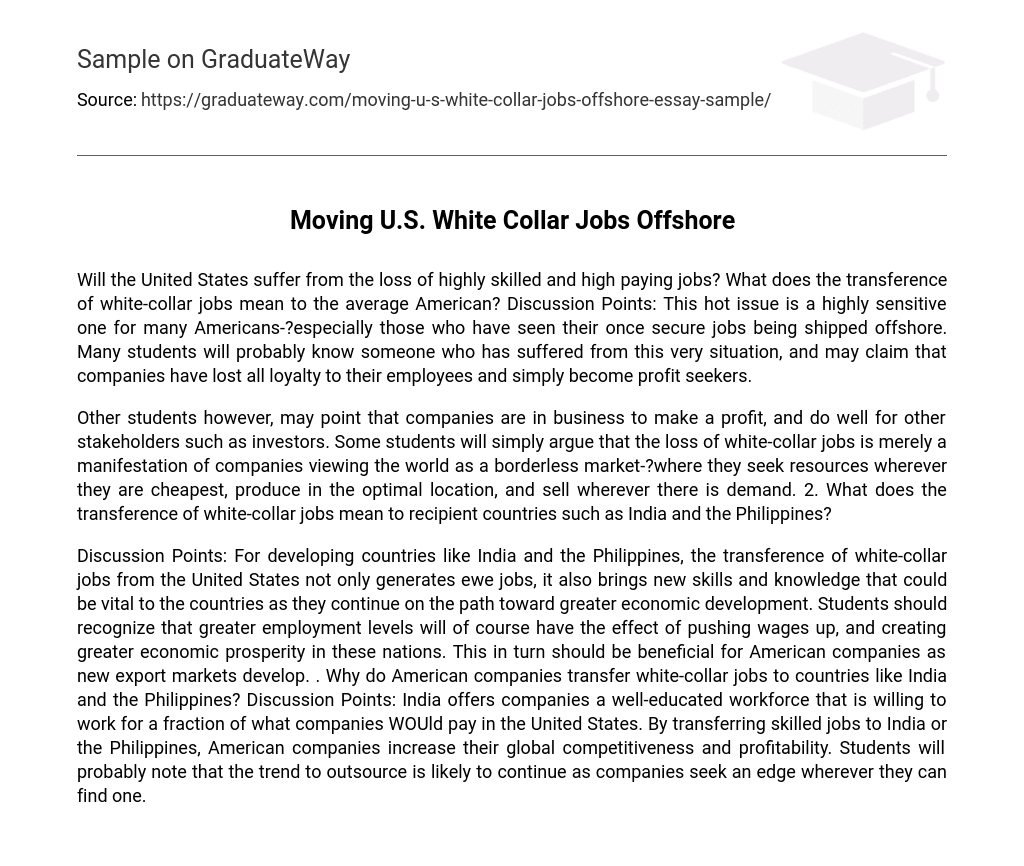Will the United States suffer from the loss of highly skilled and high paying jobs? What does the transference of white-collar jobs mean to the average American? Discussion Points: This hot issue is a highly sensitive one for many Americans-?especially those who have seen their once secure jobs being shipped offshore. Many students will probably know someone who has suffered from this very situation, and may claim that companies have lost all loyalty to their employees and simply become profit seekers.
Other students however, may point that companies are in business to make a profit, and do well for other stakeholders such as investors. Some students will simply argue that the loss of white-collar jobs is merely a manifestation of companies viewing the world as a borderless market-?where they seek resources wherever they are cheapest, produce in the optimal location, and sell wherever there is demand. 2. What does the transference of white-collar jobs mean to recipient countries such as India and the Philippines?
Discussion Points: For developing countries like India and the Philippines, the transference of white-collar jobs from the United States not only generates ewe jobs, it also brings new skills and knowledge that could be vital to the countries as they continue on the path toward greater economic development. Students should recognize that greater employment levels will of course have the effect of pushing wages up, and creating greater economic prosperity in these nations. This in turn should be beneficial for American companies as new export markets develop. . Why do American companies transfer white-collar jobs to countries like India and the Philippines? Discussion Points: India offers companies a well-educated workforce that is willing to work for a fraction of what companies WOUld pay in the United States. By transferring skilled jobs to India or the Philippines, American companies increase their global competitiveness and profitability. Students will probably note that the trend to outsource is likely to continue as companies seek an edge wherever they can find one.





